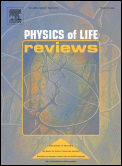
Physics of Life Reviews
Scope & Guideline
Pioneering Reviews in the Physics of Life
Introduction
Aims and Scopes
- Interdisciplinary Research:
The journal promotes research that spans multiple disciplines, including physics, neuroscience, biology, and psychology, fostering a holistic understanding of life and consciousness. - Modeling Biological Systems:
A significant emphasis is placed on mathematical and computational modeling to explore biological processes, particularly in areas like evolutionary dynamics, cancer biology, and cognitive science. - Consciousness and Cognition:
Research on the mechanisms of consciousness, perception, and cognition is a core focus, particularly studies that integrate neurobiological and psychological perspectives. - Self-Organization and Complexity:
The journal highlights the principles of self-organization and complexity in biological systems, exploring how these concepts can explain emergent behaviors in living organisms. - Biophysical Mechanisms:
Investigations into the biophysical mechanisms underlying various biological phenomena, such as mechanotransduction and electrical properties of cells, are central to the journal's scope.
Trending and Emerging
- Integrative Approaches to Consciousness:
There is an increasing focus on integrative frameworks that combine neuroscience, psychology, and physics to understand consciousness, reflecting a growing interest in interdisciplinary methodologies. - Applications of Machine Learning:
The use of machine learning techniques to analyze complex biological data is trending, showcasing a blend of computational methods with traditional biological research. - Mechanotransduction in Health and Disease:
Research on mechanotransduction—the process by which cells sense and respond to mechanical stimuli—is gaining prominence, especially in its implications for health and disease, such as in cancer and osteoarthritis. - Environmental Influences on Biological Systems:
Studies examining how environmental factors impact biological processes are increasingly prevalent, aligning with global concerns about climate change and sustainability. - Collective Behavior and Swarm Intelligence:
There is a notable rise in research exploring collective behavior in biological systems, including swarm intelligence in animals and its implications for understanding complex adaptive systems.
Declining or Waning
- Traditional Reductionism:
Research that primarily adopts a reductionist approach to biological systems has seen a decline, as there is a growing preference for integrative and systems-based perspectives. - Purely Theoretical Models:
The emphasis on purely theoretical models without empirical validation appears to be waning, with a noticeable shift towards studies that incorporate experimental data and real-world applications. - Static Biological Systems:
Studies concentrating on static models of biological systems are becoming less common, as there is a trend towards dynamic modeling that accounts for temporal changes and interactions within systems. - Focus on Individual Species:
Research focused solely on individual species without considering ecological interactions and evolutionary dynamics is decreasing, as interdisciplinary studies become more favored. - Cognitive Mechanisms without Context:
Investigations of cognitive mechanisms that do not consider environmental, social, or cultural contexts are less frequently published, reflecting a shift towards more contextualized approaches.
Similar Journals
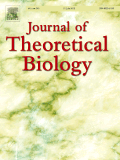
JOURNAL OF THEORETICAL BIOLOGY
Innovating Insights into Complex Biological SystemsJOURNAL OF THEORETICAL BIOLOGY, published by Academic Press Ltd - Elsevier Science Ltd, stands as a pivotal source of scholarly research in the domains of theoretical and applied biological sciences. Since its inception in 1961, this esteemed journal has contributed significantly to the advancement of knowledge across various fields, including agricultural sciences, applied mathematics, biochemistry, genetics, immunology, and medical research. With a commendable Q2 ranking in multiple categories for 2023, it showcases robust impact throughout the academic community, reflected in its high Scopus rankings, which place it in the top 25% of journals in several categories. The journal's commitment to fostering interdisciplinary research supports its objective of bridging theoretical frameworks with practical applications, making it an essential resource for researchers, professionals, and students alike. With its wide-ranging topics and a keen focus on innovation, the JOURNAL OF THEORETICAL BIOLOGY is indispensable for those seeking to explore the complexities of biological systems and their mathematical modeling.

Biophysical Reviews
Connecting Research and Innovation in Biophysical StudiesBiophysical Reviews, published by SpringerNature, is a leading international journal focused on the interdisciplinary areas of biophysics, structural biology, and molecular biology. With an impressive 2023 impact factor, the journal ranks in the Q1 category for biophysics and is also highly regarded in structural and molecular biology, reflecting its commitment to advancing understanding in these critical fields. Operating since 2009 and converging toward its goal of comprehensive coverage by 2024, Biophysical Reviews provides a platform for researchers to share innovative insights and critical reviews that shape the future of biophysical sciences. Its rigorous peer-review process ensures high-quality publications that are closely monitored within the academic community, making it an essential resource for researchers, professionals, and students aiming to stay at the forefront of biophysical research. Access options are available for enhancing the dissemination of knowledge, supporting a broad audience dedicated to scientific excellence.

International Journal of Mathematics and Physics
Empowering Scholars to Push the Limits of UnderstandingThe International Journal of Mathematics and Physics, published by AL-FARABI KAZAKH NATIONAL UNIVERSITY, serves as a vital platform for scholars and researchers engaged in the fields of mathematics and physics. With an ISSN of 2218-7987 and E-ISSN 2409-5508, this journal has been committed to disseminating high-quality research since its inception in 2019, and will continue to do so until 2024. Although currently not an open access journal, it provides valuable insights into a diverse array of topics, receiving considerable attention within the academic community. The journal holds a Q4 ranking in categories such as Computer Science Applications, Miscellaneous Mathematics, and Miscellaneous Physics and Astronomy, highlighting its emerging role in these fields. With Scopus rankings placing it at the lower percentiles, the objective of the journal is to foster growth and offer a constructive forum for ideas that will drive innovative research and discussions. The International Journal of Mathematics and Physics is essential for anyone looking to explore the intersections of these disciplines and advance their knowledge through collaborative scholarship.
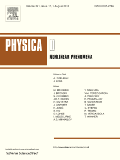
PHYSICA D-NONLINEAR PHENOMENA
Connecting Researchers to the Heart of Nonlinear PhysicsPHYSICA D-NONLINEAR PHENOMENA, published by Elsevier, serves as a leading academic journal at the forefront of the fields of Applied Mathematics, Condensed Matter Physics, Mathematical Physics, and Statistical and Nonlinear Physics. With an impressive track record since its inception in 1980, this journal has maintained a distinguished presence, noted for its Q1 ranking in multiple categories in 2023, showcasing its impact and relevance in the scientific community. The journal's commitment to advancing knowledge is reflected not only in its rigorous peer-reviewed articles but also through its high visibility and accessibility, aiding researchers, professionals, and students in staying abreast of the latest developments in nonlinear phenomena. Located in Amsterdam, Netherlands, PHYSICA D-NONLINEAR PHENOMENA is essential for those seeking to explore innovative research and contribute to groundbreaking discoveries in the realm of nonlinear dynamics.

Biological Theory
Fostering Critical Analyses in Biological ResearchBiological Theory is an esteemed academic journal published by Springernature, focusing on the interdisciplinary realms of ecology, evolution, behavior, and philosophy of science. With an ISSN of 1555-5542 and an E-ISSN of 1555-5550, the journal had its converged years from 2006 to 2011 and from 2013 to 2024, reflecting its commitment to ongoing scholarly dialogue. Notably, it holds a prestigious Q2 ranking in Ecology, Evolution, Behavior and Systematics, and an impressive Q1 ranking in History and Philosophy of Science, highlighting its influential role in shaping discussions across these fields. The journal is well-received in the academic community, with Scopus rankings placing it in the 88th percentile for History and Philosophy of Science and the 59th percentile for Ecology, demonstrating its broad impact and relevance. Researchers, professionals, and students can access cutting-edge theories and critical analyses of biological concepts that contribute to a deeper understanding of life sciences without an open access model, further emphasizing the journal's significance in both historical and contemporary scientific discourse.

JOURNAL OF BIOLOGICAL PHYSICS
Innovating Insights in Biological PhysicsThe JOURNAL OF BIOLOGICAL PHYSICS, published by Springer, is a premier interdisciplinary journal that focuses on the intersection of biological sciences and physics. With an ISSN of 0092-0606 and an E-ISSN of 1573-0689, this journal serves as a significant platform for researchers and professionals to publish innovative studies, covering fields such as atomic and molecular physics, biophysics, cell biology, and molecular biology. The journal has been a key player since its inception in 1973, showcasing rigorous scientific inquiry and advancing knowledge within these domains, reflected in its categorization in the Q3 and Q4 quartiles of various relevant fields as of 2023. While it currently operates without an Open Access model, the journal continues to provide pivotal contributions to its audience, supporting academic and practical advancements in biological physics while engaging a broad scope of scholarly discourse.
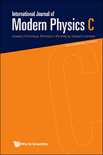
INTERNATIONAL JOURNAL OF MODERN PHYSICS C
Elevating Understanding in Statistical and Nonlinear PhysicsINTERNATIONAL JOURNAL OF MODERN PHYSICS C, published by WORLD SCIENTIFIC PUBL CO PTE LTD, is a pivotal platform for disseminating groundbreaking research in the fields of computational theory, mathematical physics, and statistical physics. With an ISSN of 0129-1831 and an E-ISSN of 1793-6586, this esteemed journal, based in Singapore, serves a global audience of researchers and professionals who are dedicated to pushing the boundaries of knowledge in modern physics. The journal's rigorous selection process ensures the inclusion of high-quality articles that advance the understanding and application of complex theoretical concepts. Currently, the journal holds a commendable Q3 quartile ranking across several categories, including Computational Theory and Mathematics and Statistical and Nonlinear Physics, reflecting its influence and relevance in the academic community. Covering a wide array of topics from 1996 to 2024, the INTERNATIONAL JOURNAL OF MODERN PHYSICS C is not just a repository of research; it is a critical resource for students and scholars aiming to stay at the forefront of modern scientific inquiry.
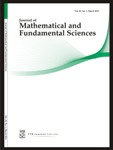
Journal of Mathematical and Fundamental Sciences
Fostering collaboration across diverse scientific disciplines.Journal of Mathematical and Fundamental Sciences, published by INST TEKNOLOGI BANDUNG, serves as an essential platform for disseminating research findings in the diverse fields of mathematical and fundamental sciences. With an ISSN of 2337-5760 and recognized as an Open Access journal since 2013, this publication promotes global accessibility to innovative research, fostering collaboration among researchers, professionals, and students in Indonesia and beyond. The journal has demonstrated its influence within the academic community, evidenced by its classification in various quartiles for 2023, including Q3 in Agricultural and Biological Sciences and Mathematics, and Q4 rankings in several other disciplines. Furthermore, it holds respectable Scopus ranks across numerous categories, reflecting its commitment to quality and relevance in research contributions. With a focus on multidisciplinary studies, the Journal of Mathematical and Fundamental Sciences is dedicated to advancing knowledge and inspiring new ideas across a spectrum of scientific inquiries.
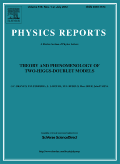
PHYSICS REPORTS-REVIEW SECTION OF PHYSICS LETTERS
Advancing the frontiers of physics knowledge.Physics Reports - Review Section of Physics Letters is a prestigious journal published by Elsevier, dedicated to providing comprehensive and insightful reviews in the field of physics and astronomy. With its ISSN 0370-1573 and E-ISSN 1873-6270, this esteemed publication features high-quality content that spans a converged timeline from 1971 to 2024. Recognized as a Q1 journal in the Physics and Astronomy category for 2023, it holds a remarkable Scopus ranking of #2 out of 243, placing it firmly in the top 1% of its field. The journal serves as a pivotal resource for researchers, professionals, and students alike, facilitating the dissemination of critical analyses and contemporary developments in physics. While it is not open access, its rigorous peer-reviewed articles ensure that students and researchers remain at the forefront of scientific inquiry. With its impactful contributions, Physics Reports continues to enhance the knowledge base and push forward the boundaries of physics research.

PLOS BIOLOGY
Advancing Biological Knowledge for a Global AudiencePLOS BIOLOGY, published by PUBLIC LIBRARY SCIENCE, is a leading open-access journal that has been at the forefront of biological research since its inception in 2003. This high-impact journal (with an impressive Scopus ranking placing it in the top 10% across multiple biological disciplines) aims to disseminate groundbreaking research findings in a variety of fields, including Biochemistry, Genetics, Molecular Biology, Immunology, Microbiology, and Neuroscience. With a commitment to open-access principles, PLOS BIOLOGY ensures that its content is freely available to a global audience, fostering collaboration and innovation among researchers, professionals, and students worldwide. Its Q1 quartile status in 2023 highlights the journal's prestigious standing within the academic community, making it an essential resource for those seeking to stay updated with the latest advancements in biological sciences. The journal's scope extends from 2003 to 2024, reflecting its sustained relevance and impact in driving forward biological discoveries.